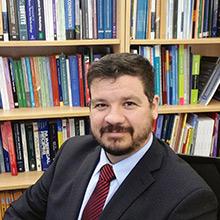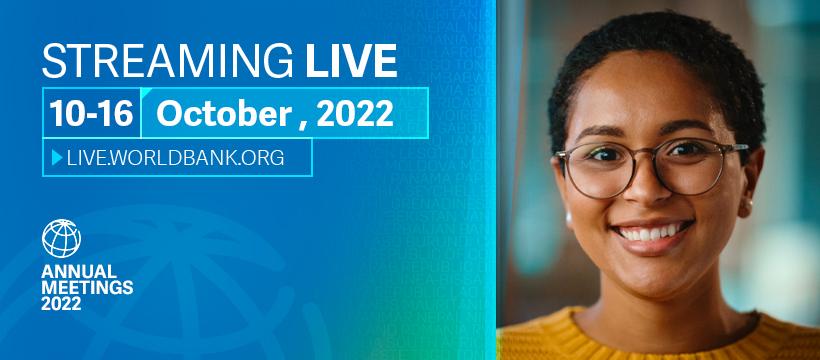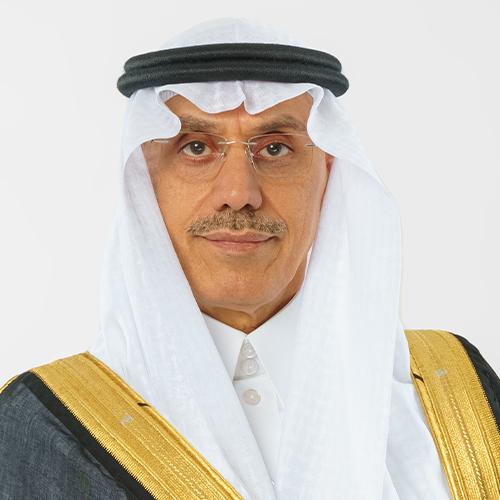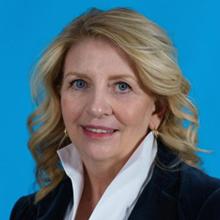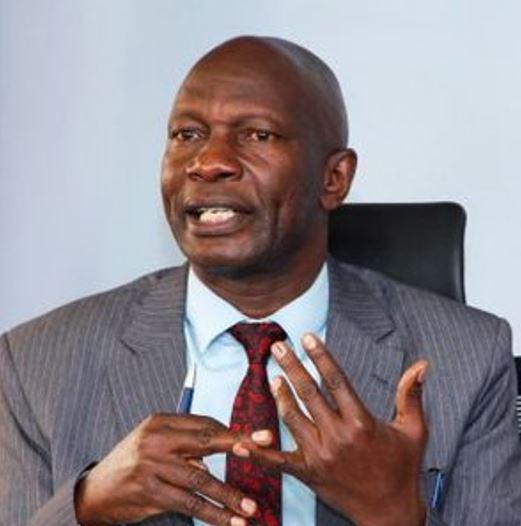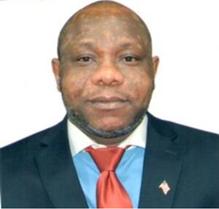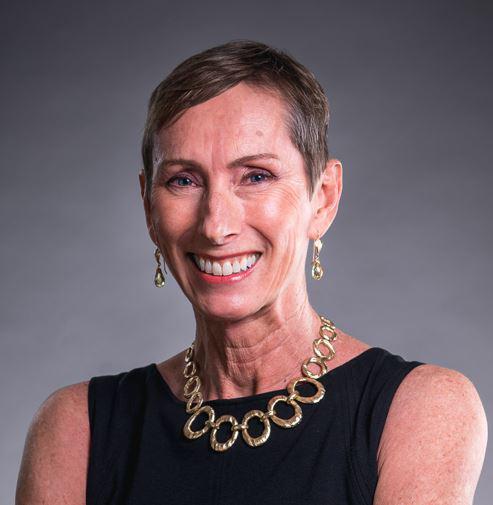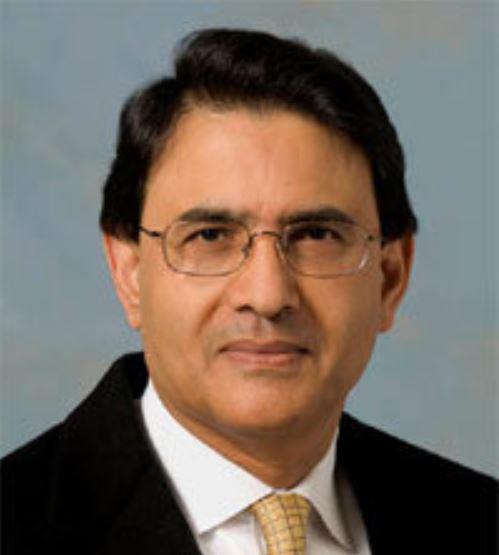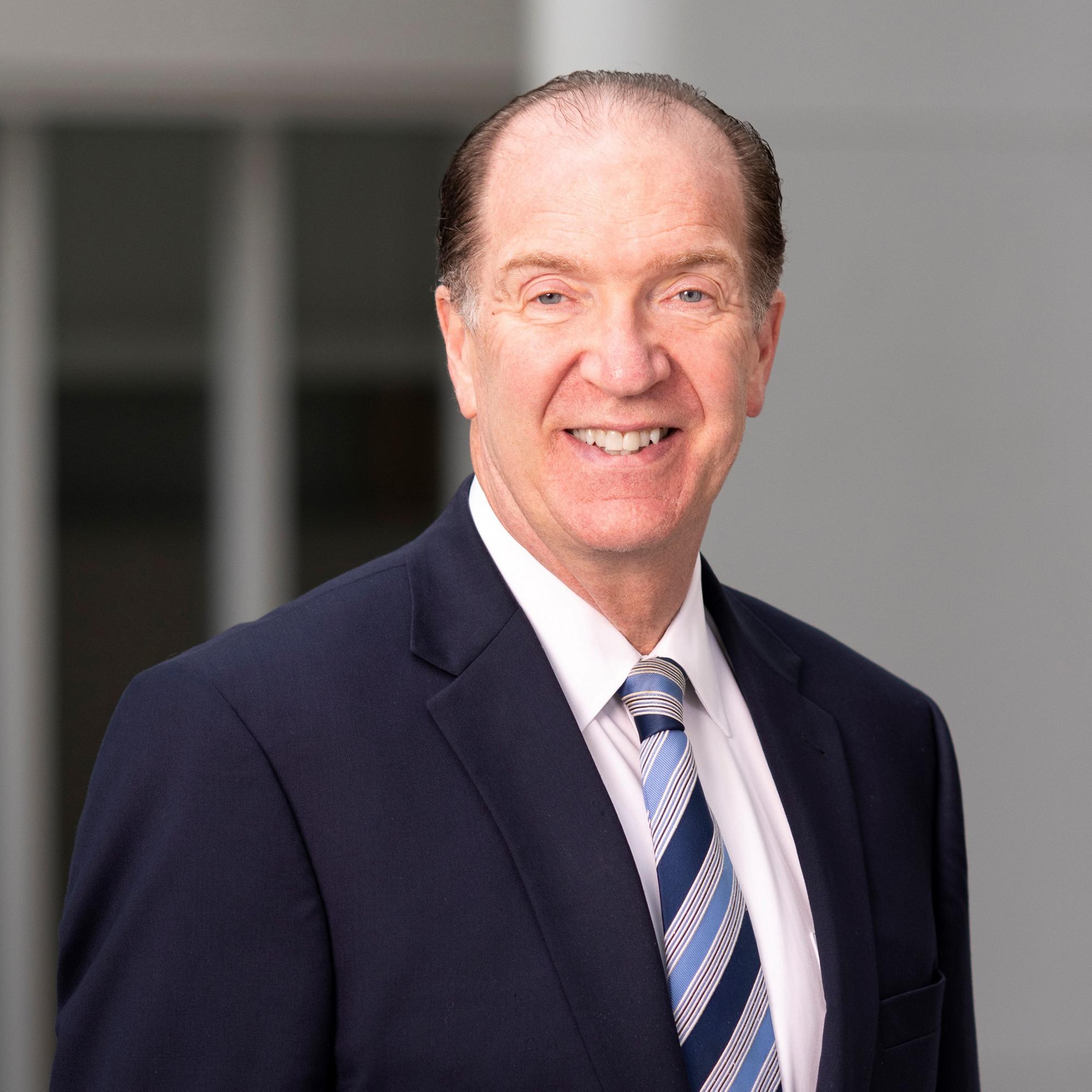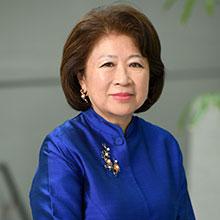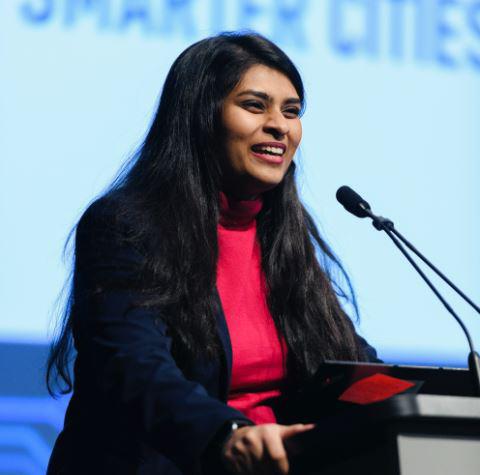Kristyn Schrader-King (Moderator):
Welcome everyone! I’m Kristyn Schrader-King, Education and Gender Global Practices Communications Lead, with the World Bank, and I will be moderating today’s live chat. I am supported today by my colleague Myra Murad Khan, Education Analyst.
Our first panel focuses on “Learning Crisis and Overcoming Learning Losses.”
Extended school closures have caused major learning losses, putting both the future of families and countries at risk. These losses are exacerbating the global learning crisis and, if not remediated, will likely translate into trillions of dollars in lost future earnings. Which policy reforms and investments are being implemented to address the learning losses and shift strategies to accelerate learning recovery?
Joao Pedro Azevedo / World Bank:
Hello everyone! I am looking forward the event and the conversation. Please submit your questions on the live chat!
Halsey Rogers / World Bank:
Greetings, everyone, and thanks for joining us for today’s discussion. We look forward to hearing from you.
Khalif Kobane:
Quality education is the key in any education investments" and to improve the quality , qualified teacher is the most critical element! what is the strategic focus of the Bank to investing on the "Teacher Training" to overcome the inequality crises of education that are triggered by the COIVD and other shocks.
Joao Pedro Azevedo / World Bank:
Dear @KahlifKobane, thanks for the great question!
Teachers are at the center of the RAPID framework.
To measure children’s current learning levels after their return to school is essential, to help teachers target instruction in the classroom to each child’s starting point. This requires providing teachers with formative assessment tools that they can easily apply in the classroom.
And to prioritize teaching fundamentals it is essential to free teachers from the excessive burden of having to cover too much material. Learning recovery programs should also help
teachers to improve their teaching of foundational skills, notably through specific and practical training and teacher guides connected to well-designed student textbooks. Pre-COVID evidence from countries like Brazil and Kenya showed that a greater focus on foundational learning, with practical tools to support it, is central to successful learning acceleration as well.
For more information please check out our RAPID Guidance Note. https://thedocs.worldbank.org/... (pdf)
Sheikh Majib Ul Rehman:
How we solve the Learning Gaps of students very quickly due to close of schools due to Covid-19?
Halsey Rogers / World Bank:
@Sheikh Majib Ul Rehman, The World Bank and 5 leading partners recently lanuched the RAPID framework to highlight what countries need to do—and what many already doing—during the next few years to recover and accelerate learning. RAPID is an acronmym for:
- Reach every child and keep them in school
- Assess learning levels regularly
- Prioritize teaching the fundamentals
- Increase the efficiency of instruction
- Develop psychosocial health and well-being
With approaches like these, countries can also build more effective, equitable, and resilient education systems for the long term. But it’s crucial to put them in place right now—RAPIDly—before more time is lost.
Halsey Rogers / World Bank:
For more on RAPID, see this link: https://www.worldbank.org/...
Adnan Ahmed Qureshi:
What role can technology play in mitigating the learning crisis the world is facing?
Halsey Rogers / World Bank:
@Adnan, thanks for asking. Technology can be a very useful tool, but its use has to be designed carefully and integrated well with other investments--especially investments in teachers. The World Bank’s EdTech team provides some great guidance on how to make sure that technology delivers the most bang for the buck in helping all children learn. It’s summarized in 5 principles, extracted from successes and failures around the world:
- Ask why
- Design for scale
- Empower teachers
- Engage the ecosystem
- Be data-driven
For more details on this, see: https://www.worldbank.org/...
Halsey Rogers / World Bank:
@Adnan, for good examples of EdTech projects that embody these principles for good design for inclusion and cost-effectiveness, see: https://www.worldbank.org/...
Andrea Naletto:
A study on Japan showed little or no evidence suggesting that school closures reduced the spread of COVID-19. This might suggest that policies on school closures should be reexamined given the negative consequences on learning and well-being for both children and parents. Question: Is the WB and partners examining this in order to come up with better policies in the future that factor school closures during crisis only as a last resort?
Halsey Rogers / World Bank:
@Andrea, great question about thinking carefully before closing schools. Since the very beginning of the pandemic in early 2020, we and our partners have been trying to increase attention to the costs of school closures on children and youth. It's crucial that policymakers and the public be aware of these costs. That doesn't mean schools should never be closed, but we do have to weigh these huge, invisible costs of closures in terms of lower opportunity and inclusion for children agains the visible risks of reopening. For a very early report warning of the costs of closures, see https://openknowledge.worldbank.org/...
Joao Pedro Azevedo / World Bank:
Thanks for the question @AndreaNaletto,
Since last year, the World Bank, UNESCO and UNICEF have indicated that the process of school reopening must be accelerated. The costs of keeping schools closed vastly outweigh the benefits; however, school should always
maintain all required safety measures, adjusting them as the pandemic conditions evolve in each country and locality.
To prevent losses from becoming permanent—or, worsestill, continuing to grow even after schools reopen because students are not able to understand the curriculum— countries need to focus on reversing those losses. It is essential that countries implement a learning recovery strategies.
For more information see our State of the Global Education: A path to recovery publication and resources https://www.worldbank.org/...
Leandra Debra Laidlow:
What well-researched interventions worked to assist in decreasing learning loss?
Halsey Rogers / World Bank:
@Leandra, great question. We summarized the key, well-researched interventions in the RAPID framework, launched together with our partners at UNICEF, UNESCO, FCDO, USAID, and the Bill & Melinda Gates Foundation. These are based on some good evidence on that from the pandemic, but also on a much more evidence on what succeeded in accelerating learning for all children before the pandemic. See https://www.worldbank.org/...
Kristyn Schrader-King (Moderator):
Get ready, our panel 2 on “Restoring Jobs and Skills for Our Youth” is about to start!
The burden of pandemic induced job and income losses continue to be borne especially by youth, as many remain unemployed. What policies are needed to promote the employability of those disproportionately affected by job losses? How can governments work with the private sector on job creation, and help young people get back on track? What investments would be needed to help workers adapt to changing workplaces and to ensure a skilled workforce for future growth?
Joburg Mahuyu:
Hello. I am Joburg Mahuyu from Zimbabwe. My question is: How can developing countries retain qualified personnel (teachers) to ensure quality education?
Halsey Rogers / World Bank:
@Joburg, that's a great question, and it is at the core of strengthening education systems. Fundamentally, good education systems are those that ensure that teaching is an attractive profession, use effective personnel policies, provide practical pre-service training, and continuously support their teachers to help them reach their full potential. See https://documents1.worldbank.org/... (pdf)
Angella Muwanga:
greetings. i am from Uganda. How will children with special needs like those on the Autism Spectrum and other neurodisorders in Africa benefit from all this?
Halsey Rogers / World Bank:
@Angella, thanks for your important question. Central to the RAPID strategy for learning recovery is making sure learning works for ALL children. After long school closures increased inequality, children have an even wider variety of needs than before. We need to support teachers to understand every chld's learning level and target instruction accordingly. That will help all children, including those with special needs. For more on how the World Bank is helping governments provide inclusive education for all children, see https://www.worldbank.org/....
Sandy:
What's the most urgent policy that world leaders should adopt to better overcome unemployment and match the right skills with the right job?
Matteo Morgandi / World Bank:
Hello @sandy, There are several policies that can facilitate a better match of jobseerks and workers. These policies include the development of job matching systems, increasingly digitally provided, that help young people signal their skills and interests, and match with labor demand. Such systems improve efficiency and thus also help firms become more productive. Certification programs are also important to give a credible signal about the quality of the skills possessed by jobseekers. Increasingly such certifications cna be provided by the market in close consultation with employers's organization, and this is key for their credibility. (see some examples here https://www.s4ye.org/knowledge-repository). However, we also know that in many countries high unemployment is prevalently a question of low labor demand, that is, few desirable wage jobs in the labor market. In such cases it is key to adopt a broader set of policies that enables firms to create jobs .
Jennifer Moore:
"Which steps could businesses and government leaders take to address the skills gap and youth unemployment?
Matteo Morgandi / World Bank:
@jennifer, today's discussion focuses on enahcing skills and education, and this is certainly important to improving chances to meet employers' demand for skilled work. My colleagues gave several examples of the policies to improve skills. However, the constraints to increasing employment can be many. We know that in many countries the creation of desirable wage jobs in the labor market depends on developing specific industries and value chain, by removing specific constraints to growth. The WBG supports also governments on diagnostics, that help identify constraints to the broader business environment for firms to grow.
Pierina Anton Lopez:
There are an estimated 240 million children with disabilities around the world. The COVID-19 pandemic has resulted in huge learning losses, especially for students with disabilities who were already facing barriers to accessing education prior to the pandemic. How are your organizations ensuring that digital transformation and education projects are disability-inclusive, so that students with disabilities are not left behind in the COVID-19 learning "catch up"?
Pierina Anton Lopez:
How can we ensure that education investments, especially for those most at-risk of severe COVID-19 learning loss such as girls and children with disabilities, are protected from budget cuts in the shrinking fiscal space, and looking forward, how can we meet the global benchmark of 20% of public expenditure towards education?
Halsey Rogers / World Bank:
@Pierina, important question on how to protect education investments. A key way to protect all children, especially those most at-risk, is to raise awareness. Everybody--not just governments--needs to recognize how much is at stake. We estimate that without rapid learning recovery, today's generation of children and youth will lose $21 trillion in future earnings--and their countries will suffer too. Much better to invest now and prevent these long-term costs. So we all need to spread the word.
Aminu wahab:
Hi I'm Aminu, my question is, how do we go about bringing investors in both home and abroad in a country like mine in the sub sahara africa were there exist factors political crisis, social crisis, economic crisis and so on and also my major worry is the educatioal structure to which we want to invest in.
Matteo Morgandi / World Bank:
Hello @Aminu. This is an important question, as investment (domestic and foreign) is really important to grow firms and create jobs. Job creation depends on several factors, and often opportuities are sector -specific. Diagnostics of potential opportunities by the market are thus important to identify and prioritize policy reforms, or government interventions such as in infrastructure, that can support investment. See this as an example for Angola: (Creating Markets in Angola : Country Private Sector Diagnostic. https://www.ifc.org/...)
Waleed Al-sowaidi:
How we provide emergency intervention and in the same time build long term outcome, which is most important for Education?
Halsey Rogers / World Bank:
@Waleed, you bring up an important point about emergency response vs. better long-term outcomes. If we chose the right policies, there's not actually a tradeoff. The very same interventions that are most effective for learning recovery--things like checking to see how well children are learning, targeting teaching to their learning needs, supporting teachers with practical training and guides--will also be most effective in the long term. Countries that adopt them will have much better, more inclusive education outcomes in the long run.
Travia:
How would the learning loss be determined? How would the effects of Covid be measured
Joao Pedro Azevedo / World Bank:
Hello @travia, It is critical for teachers to have the support to develop and implement good classroom assessments to identify the level of learning of students as they return to school. This information is of crucial importance to enable teachers to identify and plan local learning recover strategies.
In countries, with a pre-pandemic National and/or International large scale assessments, it is important to conduct a comparable data collection effort, in order to measure the actual learning losses of the current generation of students. It is particularly important to measure how unequal these learning losses have been; which groups of students have lost the most, and which groups have managed to protect their learning during the pandemic. This information is fundamental to plan interventions as scale and identify the overall effort level required to protect this generation of students.
Joao Pedro Azevedo / World Bank:
The World Bank recognizes that prepared, trained, motivated, and empowered teachers are critical to student learning and success. The World Bank’s Platform on Successful Teachers outlines five principles to support teachers holistically throughout the entirety of their careers: 1) Make Teaching Attractive; 2) Improve Pre-Service Education; 3) Improve Selection, Allocation, Monitoring and Feedback; 4) Provide High-Quality Professional Development and School Leadership; and 5) Use Technology Wisely.
One of the initiatives to this end is the Coach program, focused on helping countries improve in-service teacher professional development programs to ensure that they lead to improvements in teaching practice, and ultimately, improved student learning. Learn more here: https://www.worldbank.org/...
ECCE:
What policies can be established to help young children at risks of mental health issues due to loss of Social and Emotional Learning during the Pandemic period?
Halsey Rogers / World Bank:
@ECCE, thanks for asking about mental and socioemotional health. Our learning recovery strategy is based on the RAPID framework, and the "D" of RAPID is "Develop psychosocial health and well-being." This priority is crucial not just to promote academic learning, but to promote children's overall wellbeing. We need to ensure that schools are safe and that children are healthy and protected from violence and can access basic services—such as nutrition, counselling, water, sanitation, and hygiene services. All of this can help them recover from the dislocations of long school closures and pressures on houesholds. For more, see https://www.worldbank.org/...
Valère Kouassi:
What are skills we should expect to teach to our student for the for 30 Upcoming years?
Bah:
How do ensure Early childhood education is accessible to all and to equally ensure children holistic growth and development is accompany with healthy nutrition.
Halsey Rogers / World Bank:
@Bah, early childhood development and education are key for giving all children a strong start at learning and at life. Investing in the early years is one of the smartest things a country can do to eliminate extreme poverty, boost shared prosperity, and create the human capital needed for economies to diversify and grow. Early childhood experiences have a profound impact on brain development – affecting learning, health, behavior, and, ultimately, productivity and income. For more on how we work with governments and partners to promote ECD and ECD, see:
https://www.worldbank.org/...
Kristyn Schrader-King (Moderator):
That concludes the session, thank you to all who tuned in! Check back soon for a recording of the event, which will be made available on this page. Thank you!
Also for more information about the learning crisis, we invite you to have a look at our World Bank’s immersive story: “Prioritizing education & effective policies to recover lost learning”.
https://www.worldbank.org/...



